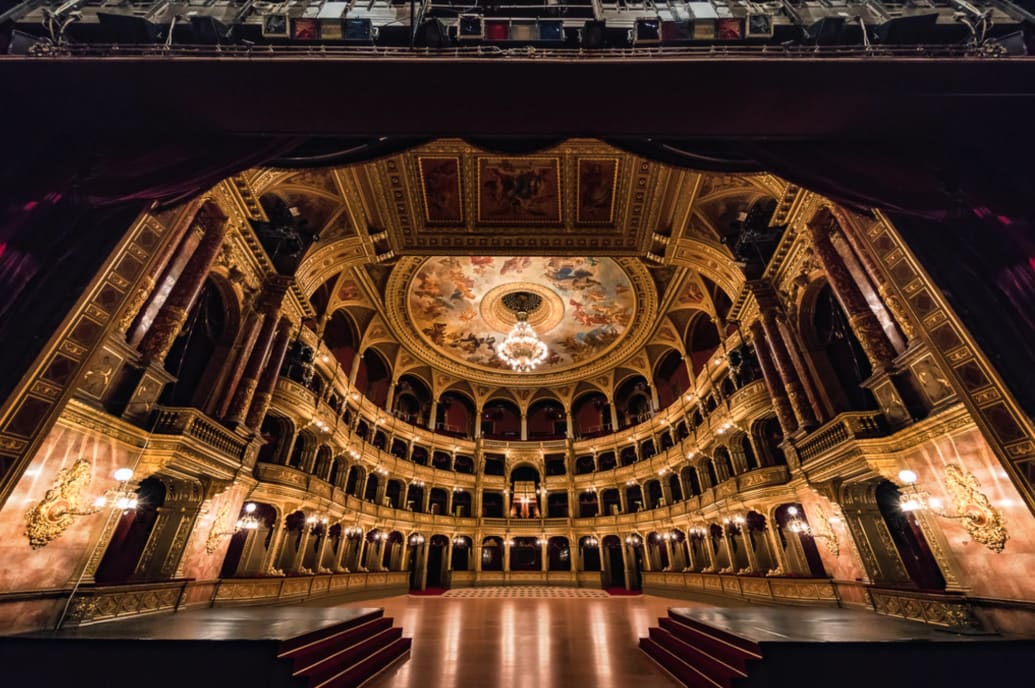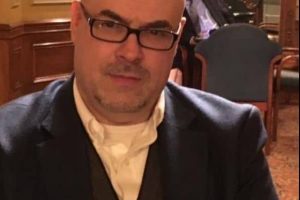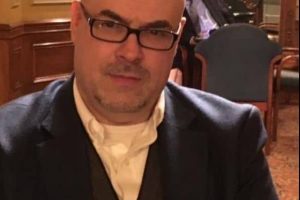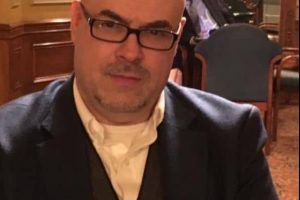The trip was about to start, and Ricardo Araujo needed to find a mermaid.
His client, the heir to a large American family fortune, was embarking on a three-week cruise that would follow the path of the epic poem The Odyssey. Araujo, a luxury travel agent who specializes in bespoke vacations, had spent six months and millions of dollars planning the trip, and he needed something truly spectacular to finish it off. When he heard the client’s granddaughter loved mermaids, he knew what it was.
Araujo scoured social media for the perfect professional mermaid—yes, those exist—then flew her from Scotland to Capri. He hired a submarine and made the driver and the actress rehearse ceaselessly, mapping out her entrance, her exit, the direction she’d be swimming when the submarine passed. He even looped in the family’s security detail, to make sure the mermaid wouldn’t be taken out if she swam too close.
Two weeks into the trip, the girl and her mother got on the submarine to look at deep-water fish. On their way back up, the vessel turned suddenly, revealing a brief glimpse of a gorgeous, aqua-tailed mermaid wiggling past the window.
When they returned to New York, Araujo said, the girl was still jumping up and down and screaming about the sighting. “I haven’t seen a happier kid ever,” he said.
Her mother was less happy.
“What am I supposed to tell her?” Araujo says she asked him. “I’m supposed to say mermaids don’t exist.”
This was one of the seemingly magical moments created by Araujo, a travel planner who clients call a “magician” and the press has deemed a “travel alchemist.” His business, as the founder and CEO of Ariodante Travel, is to pull off the seemingly impossible, from mermaid sightings to a private visit to the Vatican to a night on top of the Arc de Triomphe.
But the secret to Araujo’s artistry isn’t magic, it’s money: His trips cost anywhere from $250,000 to $22 million, and he targets customers with a personal fortune of at least $400 million—rich enough to give him what he calls a “blank check” to design the vacation of their dreams.
While most Americans are scaling back their travel plans or scrapping them altogether due to the economy, Aruajo’s fat-cat clients have no such concerns.
“It’s the haute couture of travel,” Araujo said. “But it’s not about money—even though, as you can imagine, it costs a fortune. It’s about meaning.”
Araujo was born in Colombia, the son of a diplomat who moved the family to Brussels and back again before he was 13, and he originally trained as a classical pianist and composer. He came to London in 2014 to pitch a startup idea, an app that would teach people to read music using AI, but bristled against the rigid structures of the venture capital world.
He landed a temporary job lecturing on music and philosophy at King’s College and a radio show where he answered questions about music. After a few months, Airbnb reached out to see if he would host one of their local “experiences,” taking travelers to classical music concerts. “I said, ‘Why not?’” he recalled. “It’s a free concert.”
One of Araujo’s first clients was a wealthy couple from Boston who liked him so much they asked him to join them at the Royal Opera House the next night. Araujo said he would be delighted to, but that the concert was sold out. The couple called him a few hours later to say they had not only secured three tickets, but some of the best seats in the house. That was when he learned what exactly money could buy.
Araujo got his start taking clients backstage at the London Royal Opera House.
Courtesy of Ricardo Araujo
Later, after a celebratory dinner and several glasses of whiskey, Araujo proposed taking the couple back to the opera house for a backstage tour. He had some friends in the business who owed him a favor; it would only be a matter of making a few calls. The couple was thrilled. They spent the next day touring the orchestra pits, accidentally stumbling into rehearsals, and eating the “rubbish” chicken in the cafeteria. Then they returned to Boston and told all of their friends about the experience.
Suddenly, Araujo had a new business.
But Araujo wanted more than just taking moneyed Americans to the opera house. These were ludicrously wealthy retirees with boundless time and seemingly endless resources. He didn’t blame them—”When you don’t know something is possible, you can’t ask for it,” he says—but Araujo wanted to give them something more.
So when a client called asking for a tour of all the Tudor palaces in England, he jumped at the opportunity. He dubbed the trip idea “boring” and suggested a new one, based on the client’s love of Shakespeare: a tour of the Tudor palaces through the eyes of the Bard of Avon.
Over the next several weeks, Araujo called in every favor he had, using his art-world connections for access to hidden archives and his gift of the gab for everything else. In the end, he took the client on a tour around southern England, visiting Tudor palaces, viewing some of Shakespeare’s verified signatures, and visiting the house where Christopher Marlowe—who some suspect was the real Shakespeare—was killed. He capped it off with a visit to an elementary school in the town where Shakespeare was born, where the students performed a play directed by actors from the Royal Shakespeare Company. The actors performed for the client in a local pub later.
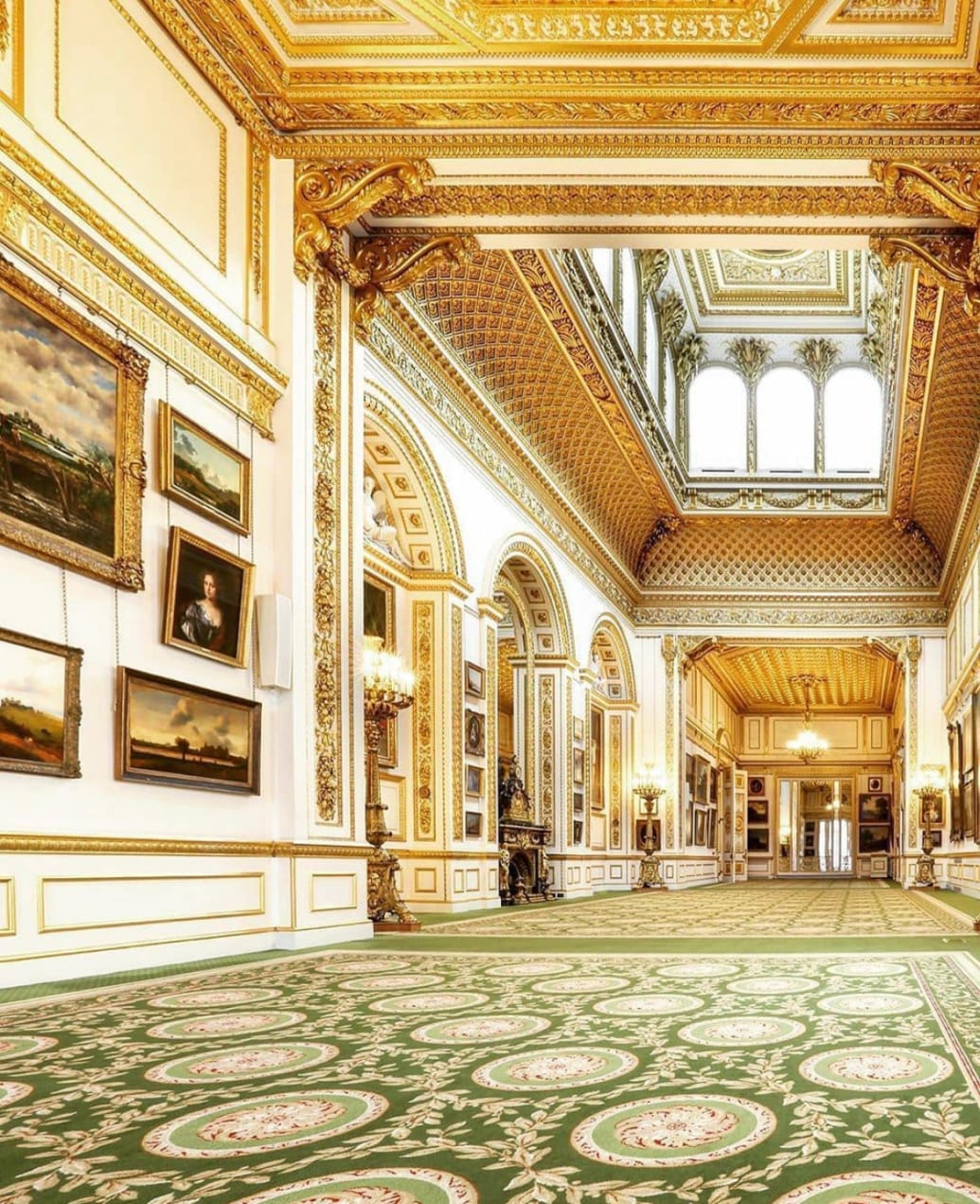
One client asked Araujo for a tour of all the Tudor palaces in England.
Courtesy of Ricardo Araujo
The client was ecstatic. This was what Araujo wanted. This was alchemy.
In the years that followed, Araujo expanded his vision, planning approximately 15 trips across 30 countries. These days, Araujo won’t plan a vacation in less than two countries or for less than $250,000 (excluding the cost of travel; clients often want to use their own private jets). He signs ultra-rigid agreements that prevent him from disclosing his clients’ full identities but describes them as the “financial and intellectual elite”— wealthy, but with a passion for history or culture.
His process goes something like this: He interviews the client, sussing out their interests, their passions, their dreams. He uses that to generate an idea for a trip, writes out a plan, and conducts the research on how to make it possible. He calls his clients’ personal assistants, chauffeurs, and chefs, pulling out the tiny, personal details that will make the trip special. (How does the client’s daughter like her orange juice? Does the family have a preferred brand of almond milk?) Then, and only then, does he discuss the budget.
“Budget” is a term Araujo uses loosely, preferring to focus on the end result rather than the ticket price. He compares the process to designing haute couture: If you’re ordering a custom-made dress, you don’t know how much you’re going to pay going in. You may want additional adornments, more alterations, or a different material. “At the beginning, I don’t know if it’s going to cost $100,000, $500,000, a million, $500 million,” he says. “Some materials are worth more than gold.”
That’s why Araujo has two rules for his clients: no last-minute bookings—magic takes time—and no itemized receipts.
Take the couple who spent the night on the Arc De Triomphe. Araujo had to haggle with the French ministry to get permission for the sleepover, then spent months hassling French architects to construct the virtually invisible, all-glass suite. As a final touch, he outfitted the room with a bottle of Krug champagne from the year the couple were married.
The champagne was a surprise—one that cost him approximately $20,000 at an auction in Hong Kong. If he’d listed it as a line item, it would have ruined the thrill.
Plus, he knew they could afford it.
“Is that bottle worth $20,000, or is it worth a million?” he asked. “It’s worth anything, because it’s a memory they will never forget.”
Getting access to these exclusive experiences requires money, yes, but also connections—and more than a little creativity. When approaching a museum or other cultural institution, he polls his network for the right contact, then thinks of a problem he can solve for them. “They always say no, it’s not possible. And then you have to find out, why is it not possible?” he says. “And then it’s like, ‘How can I solve their problems before they say there is a problem?’”
The other secret to warming up potential contact? “Poker,” Aruajo says.“A lot of poker”
There’s another reason Araujo doesn’t like simply paying his way in. Rich people—and here he chooses his words carefully—well, they tend to get bored easily. Not because they are uninterested people, but because they are used to seeing and experiencing extraordinary things. “If you are a billionaire and you go to Louis Vuitton, you get the private VIP room, you are treated like a queen,” he said. “For you, it becomes normal.”
Clients who’ve seen it all won’t be wowed by a restaurant or museum itself—they need the people inside it: a chef whose family lived in the area for decades, a librarian who gets so swept up in the story he runs into the archives to grab more documents. (The latter actually happened on a trip to the site where the first French constitution was signed; the ecstatic archivist grabbed the original minutes from Marie Antoinette’s execution.)
To perform his best, Araujo needs to embody the mindset of the filthy rich—so it helps that he comes from a relatively privileged background. His mother’s family were well-to-do and his father’s family were prominent in Colombian politics. (He claims he received presents from presidents on his birthday.) The travel agent is rarely impressed by his well-heeled clientele; nor does he seem especially troubled by the sheer extravagance involved in his trips.
In fact, he makes a practice of never asking his clients how they made their money. It’s not about that, he says: “For me, it’s about their passions.”
Which, while nice in theory, has backfired on him at least once.
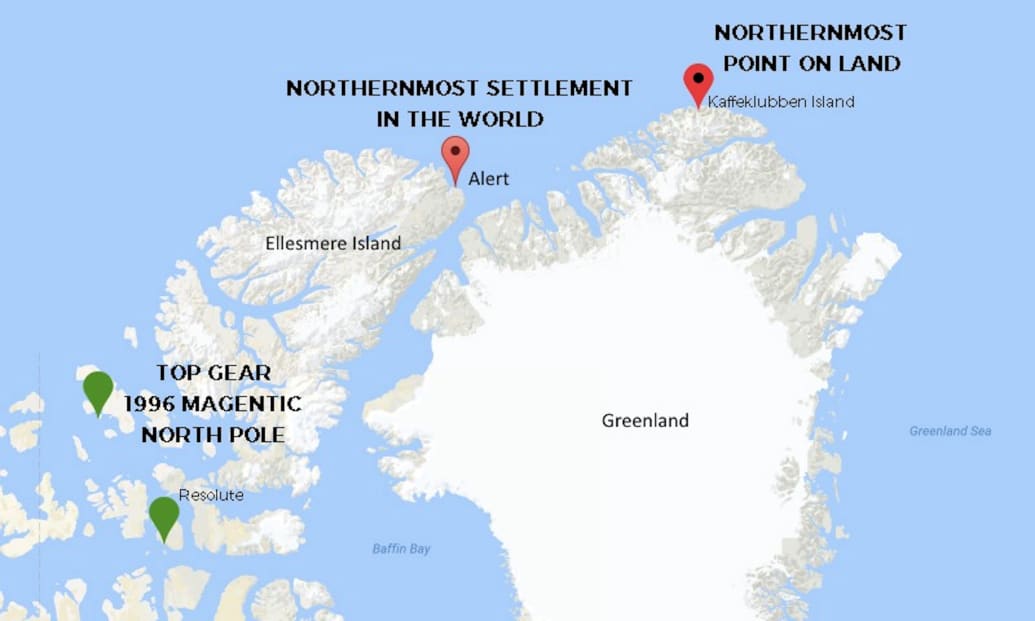
A map shows where the BBC Program Top Gear traveled when trying to reach the Magnetic North Pole, compared to where Araujo wanted to take his client.
Courtesy of Ricardo Araujo

Araujo planned to take one client to the Northernmost point on land, in Greenland.
Ariodante; Nomadic Road
Two years ago, Araujo was talking to a business partner who suggested—somewhat jokingly—that he devise an expedition to the northernmost point on land. The location, at the northernmost tip of Greenland, had never been reached by land, much less by car. Anyone who went would be setting multiple world records. Araujo decided he had to go.
Without a client lined up, Araujo spent eight months—and consulted more than 120 people—to construct the dream vacation. His team built satellites and custom tanks to drive on the icy ground; they interviewed experts and sent reconnaissance planes to take pictures and scout the route. Araujo even talked the Danish military into letting them fly into a military base. The final team included scientists—much of the trip would be recorded for climate change research—videographers, a doctor, and of course, a chef. A cruise ship was arranged to pick them up at the end.
In December 2021, Aruao secured the final element of the trip: a client. A friend of a friend suggested a Russian billionaire who was passionate about scientific research and willing to pay the roughly $22 million price tag. They were well into discussions about when to depart when Russia invaded Ukraine, and the West issued a list of oligarchs to be sanctioned. Araujo’s client was top of the list.
“I couldn’t believe it,” he said. “I was like, come on, am I cursed or what?”
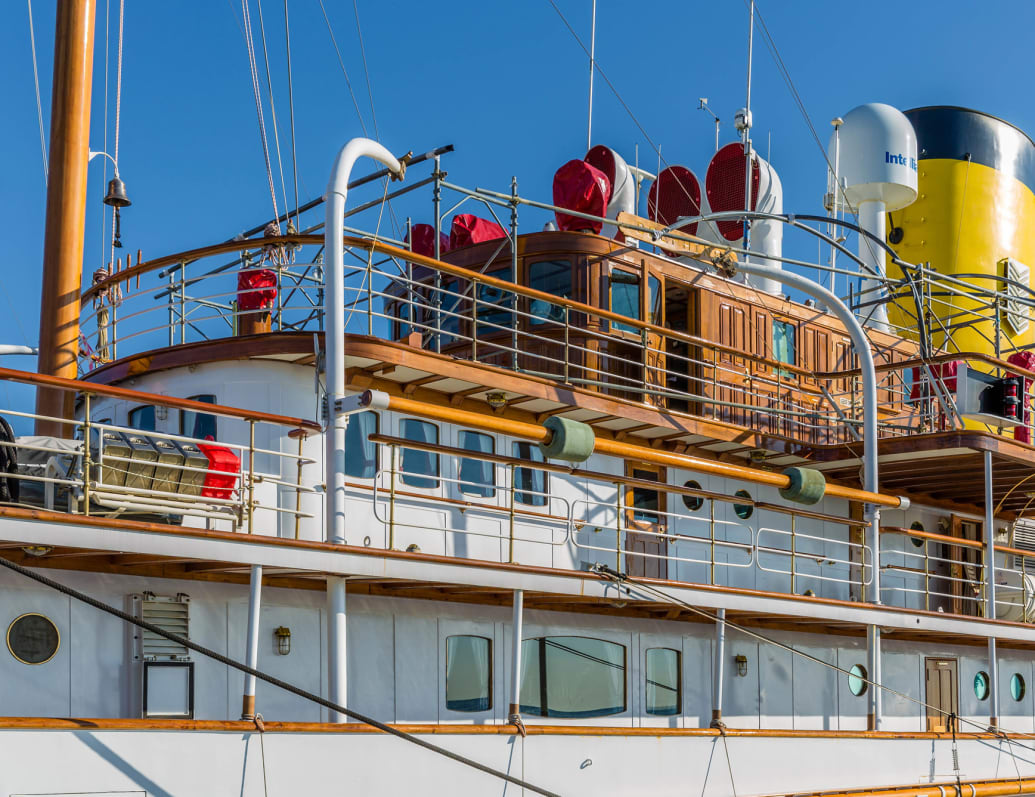
Araujo is planning a new, murder mystery-themed trip on the S.S. Delphine.
Courtesy of Ricardo Araujo
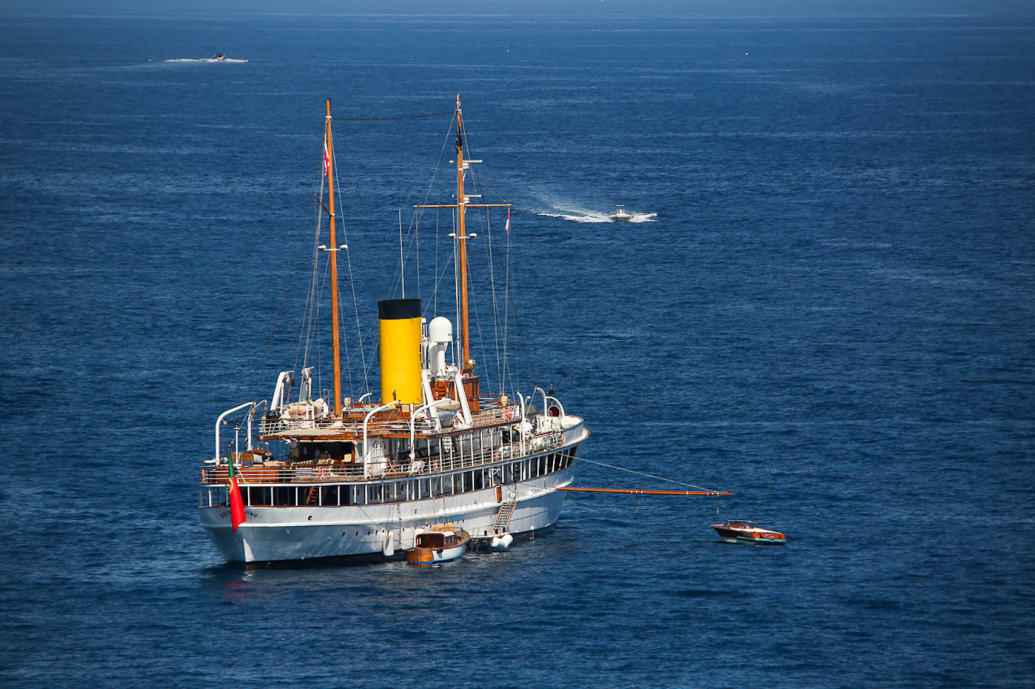
The murder mystery cruise will take place over four days in the Mediterranean.
Courtesy of Ricardo Araujo
Araujo still dreams of that record-setting expedition, but he knows it could take a while to find another client. In the meantime, he’s planning another fantasy vacation: a multi-day murder mystery in the Mediterranean. Guests will be flown to Paris for custom-made outfits, learn the Charleston dance in a famous brothel, and be served onboard by Michelin-starred chefs. Then they’ll be transported to an old steamship, which is where the mystery begins. “It’s a once-in-a-lifetime experience,” Araujo said.
Tickets start at $400,000.







